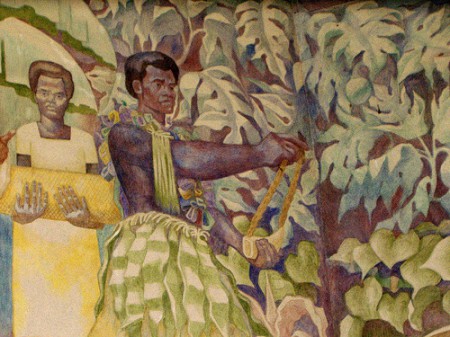Our friend Diane Ragone of the Breadfruit Institute has kindly reminded us that there’s been quite a lot published on her favourite fruit lately. Almost worth a Brainfood all on its own, in fact.
Beyond the Bounty: Breadfruit (Artocarpus altilis) for food security and novel foods in the 21st Century. Great potential, but “a deeper understanding of the nutritional characteristics and the development of new products and markets are needed.” Which is kinda provided, at least to some extent, by the next two papers.
Diversity of breadfruit (Artocarpus altilis, Moraceae) seasonality: A resource for year-round nutrition. “About 24 cultivars exhibited very little seasonality and produced fruit throughout the year. The rest of the cultivars could be clustered into seasonality groups with characteristic fruiting patterns.”
Nutritional and morphological diversity of breadfruit (Artocarpus, Moraceae): Identification of elite cultivars for food security. “…individual varieties … are particularly good sources of mineral and protein nutrition.”
